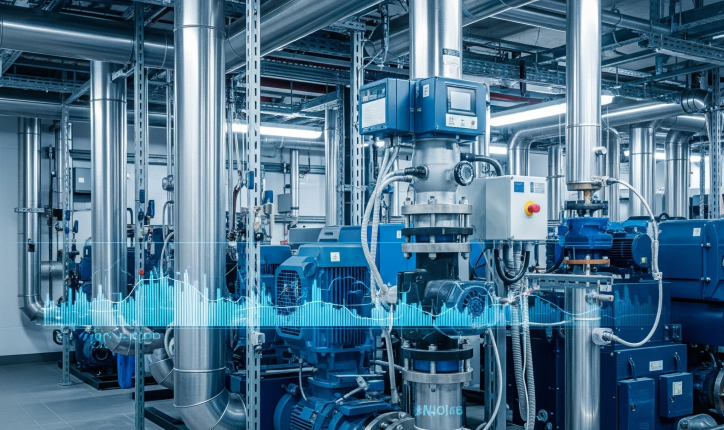Need Assistance? Call one of our experts today on: 0844 980 2218 Email: info@hflbuildingsolutions.co.uk
Need Assistance? Call one of our experts today on: 0844 980 2218 Email: info@hflbuildingsolutions.co.uk
Home/Optimising Building Performanc...

18 Views
0 Comments
7 July 2025
The operational phase of a building’s lifecycle is its most prolonged and critical. The mechanical and electrical (M&E) systems, including HVAC and domestic hot water, are foundational to its daily function. Once these systems are commissioned, the focus must transition from installation to a structured strategy of performance optimisation, regulatory compliance, and asset preservation.
An effective maintenance programme is essential for maximising asset value. It ensures systems operate at their designed efficiency and meet stringent safety standards. This is particularly crucial for water systems, where the risk from Legionella requires a diligent and documented management strategy.
Our focus is not on system design, but on the expert maintenance and management of the systems you already have in place, ensuring they perform better, for longer.
Core Tenets of a Professional Maintenance Strategy
A building’s M&E infrastructure is subject to continuous operational stress. Without intervention, this leads to performance decline and increased risk. A dedicated maintenance strategy counteracts this through three primary objectives:
Poorly maintained systems are a direct source of unnecessary expenditure. Inefficient boilers or uncalibrated HVAC controls increase fuel and energy consumption. A planned preventative maintenance (PPM) schedule ensures your equipment runs at optimal performance, cutting utility bills and reducing your building’s carbon footprint. Proactive servicing also identifies minor faults before they escalate into costly, disruptive repairs.
Building owners and operators are legally responsible for managing the risk of Legionella bacteria in their water systems. Our experienced team ensures these health risks are fully managed and that water quality meets all regulatory standards set out by the ACoP L8 and HSE guidance.
Our water quality testing engineers carry out regular monitoring and auditing as part of a comprehensive risk management strategy. This routine maintenance includes a range of critical, documented services:
This structured approach ensures your building is not just safe, but demonstrably compliant.
The replacement of major plant equipment is a significant capital expense. Proactive maintenance can postpone this expenditure by protecting your assets from premature failure. Regular, expert servicing is the most effective way to maximise the return on your original investment.
Freeman House, Orbital 24, Oldham Street, Denton, Manchester M34 3SU